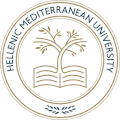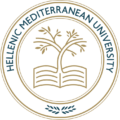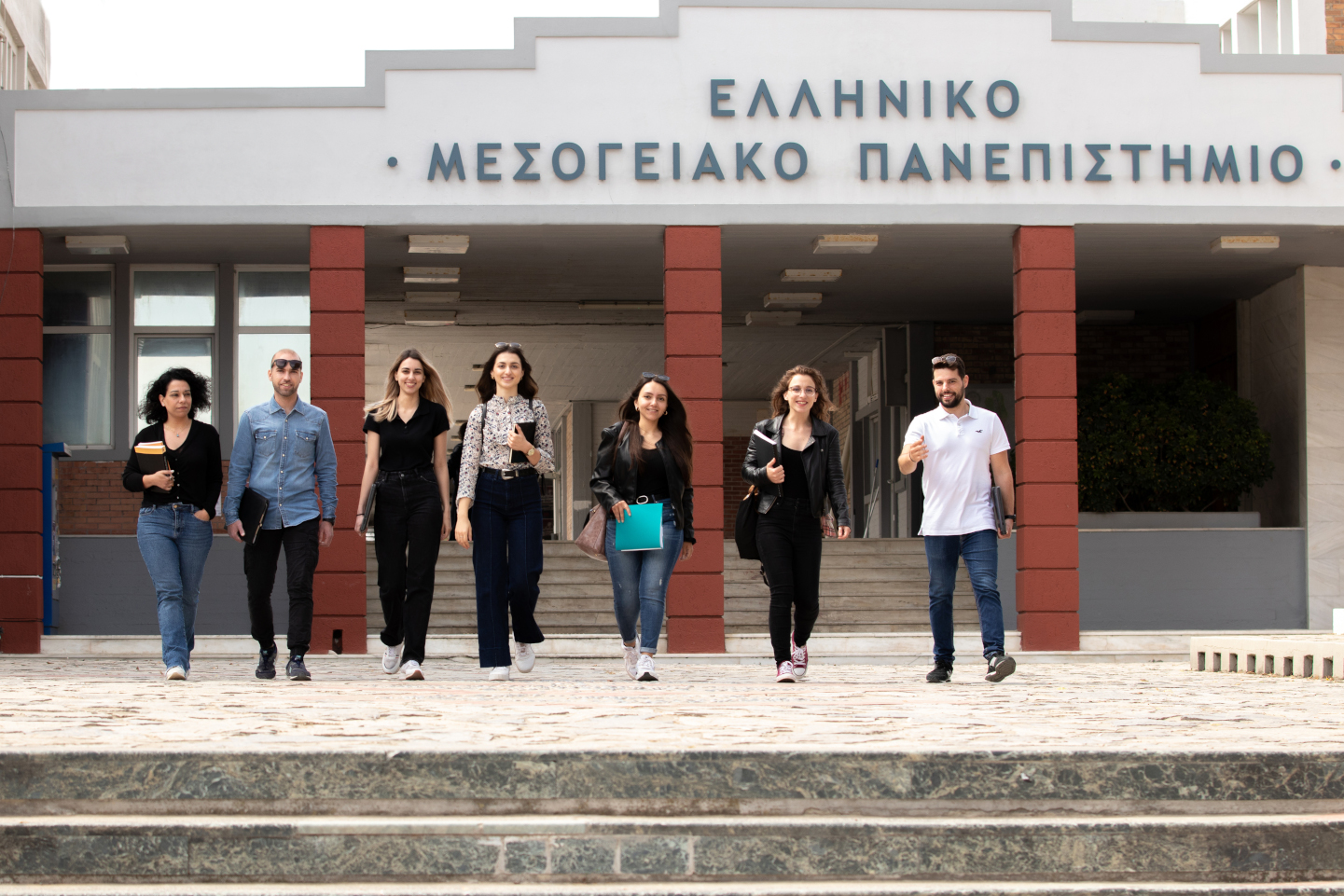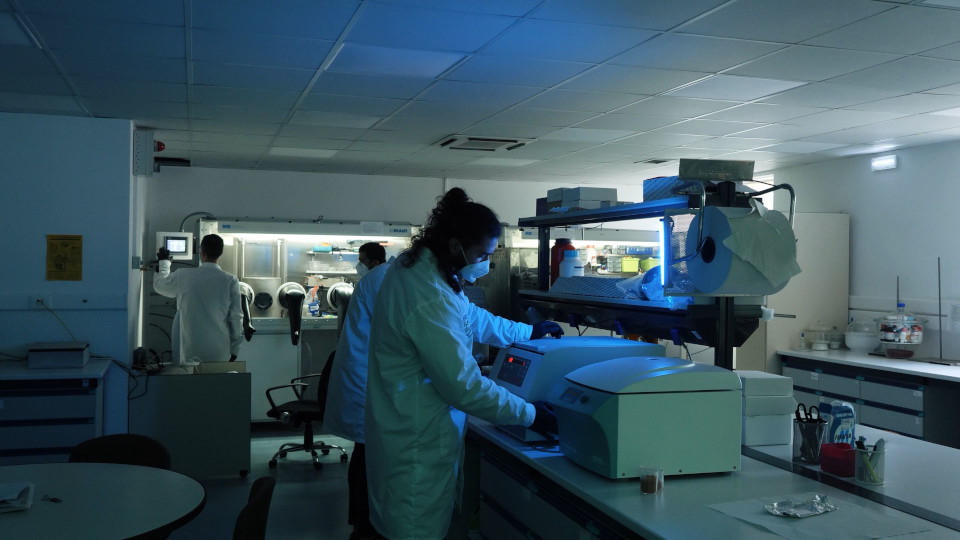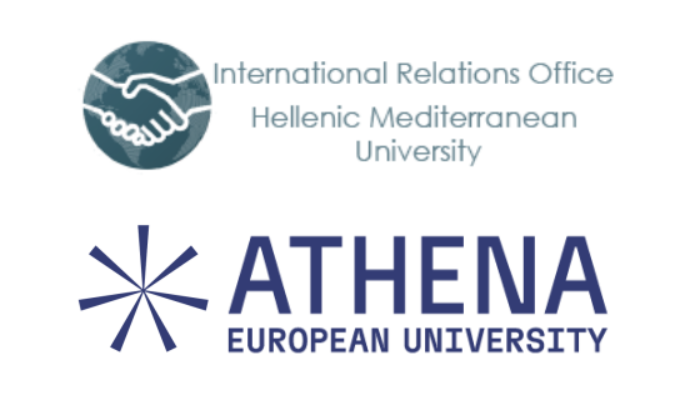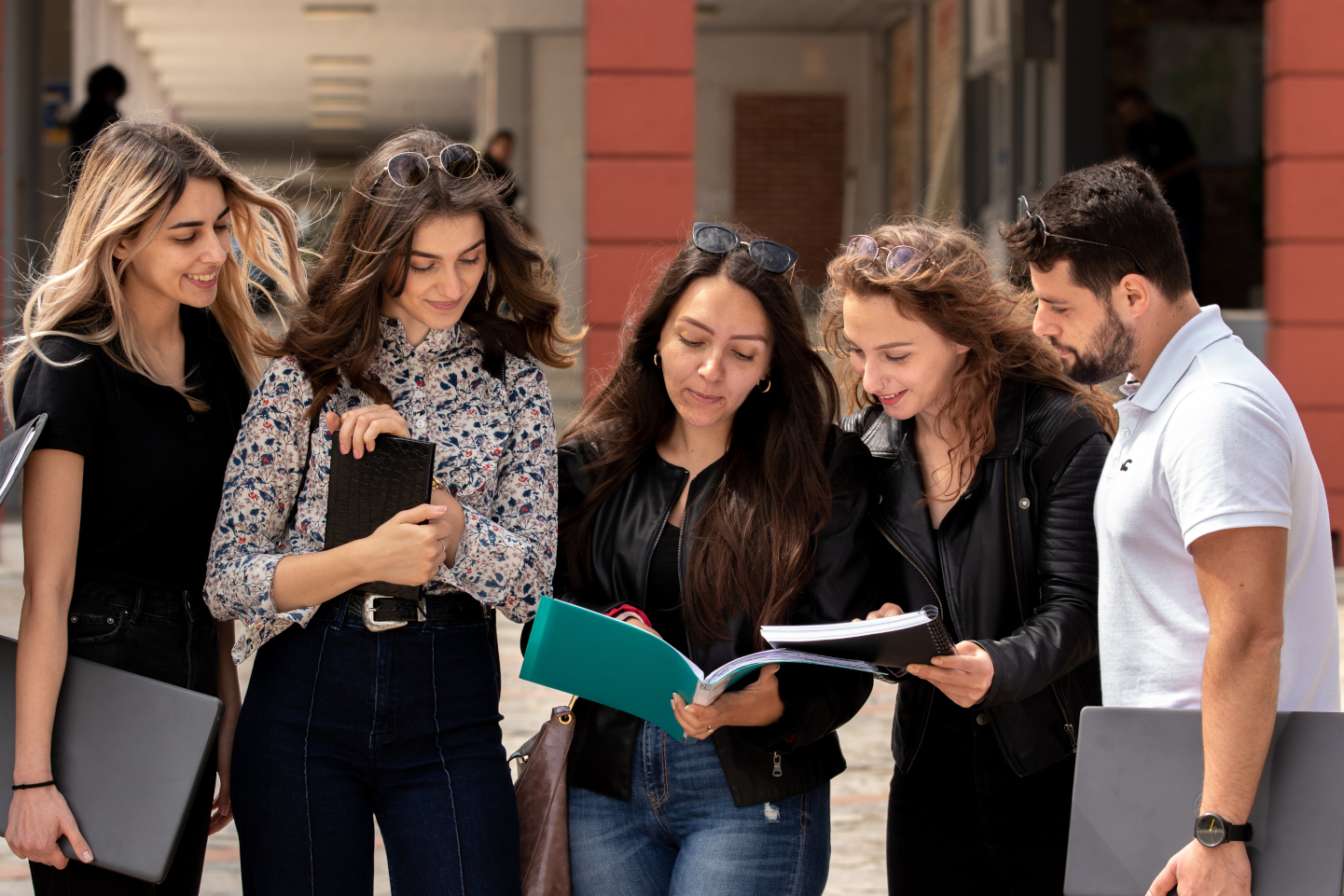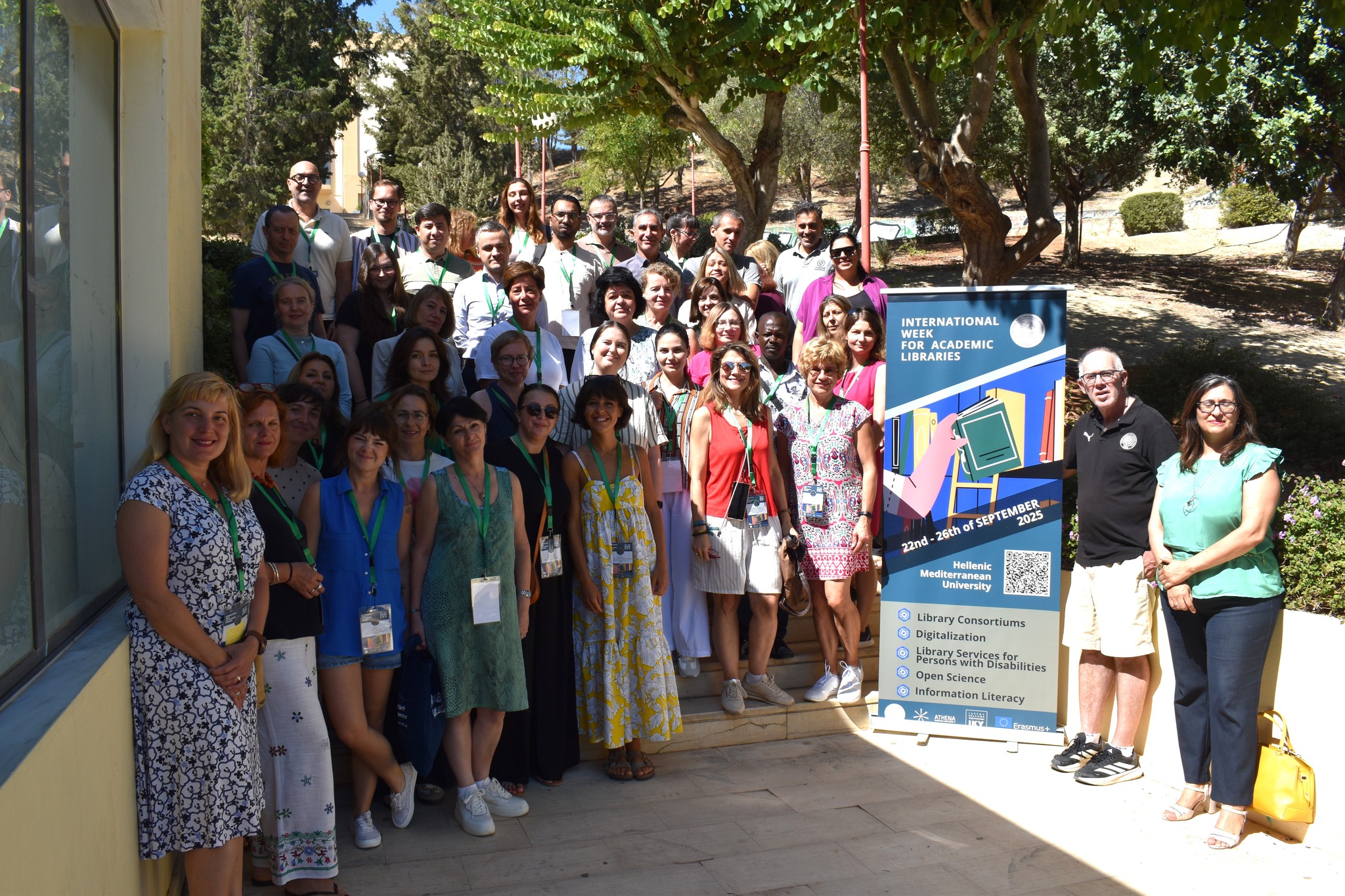The 1st International Week for Academic Libraries of the Hellenic Mediterranean University (HMU) was successfully completed from September 22 to 26, 2025, on the Heraklion Campus. This initiative, organized by the Department of Public and International Relations in collaboration with the Library & Information Center, served as a vibrant hub for international academic dialogue.
HMU welcomed 40 librarians from 20 countries, including France, Germany, Italy, Spain, Poland, and the Czech Republic, as well as countries such as Georgia, Uganda, Palestine, and Uzbekistan. This remarkable success highlights HMU’s strong commitment to promoting international cooperation and exchanging best practices in the field of academic libraries.
During the week, the HMU Library placed particular emphasis on equitable support for students with print disabilities, addressing a crucial aspect of modern academic policy.
Greece was dynamically represented at the event. In addition to HMU, participants included the Aristotle University of Thessaloniki, the University of Patras, the National Technical University of Athens, the Technical University of Crete, and the Association of Greek Academic Libraries (HEAL-Link).
Key Findings and Recommendations
The 1st International Week for Academic Libraries, hosted by Hellenic Mediterranean University (https://hmu.gr), concluded with the following key takeaways and best practices for the advancement of academic libraries:
-
Library Consortia: National consortia such as HEAL-Link play a pivotal role in developing shared infrastructure and innovative services (e.g., ILSAS+, Kallipos).
-
Open Science & Access: The shift toward Open Access Publishing is now essential and requires support through institutional policy frameworks.
-
Digital Skills: There is a growing need to train librarians in digital literacy, Artificial Intelligence (AI), and social media competencies.
-
Information Literacy Integration: Urgent need to embed information literacy across academic curricula.
-
Student Wellbeing: Introduction of “quiet zones” within libraries to support students in managing stress and enhancing focus.
-
Artificial Intelligence: Development of a national strategy for the responsible use of AI in higher education.
